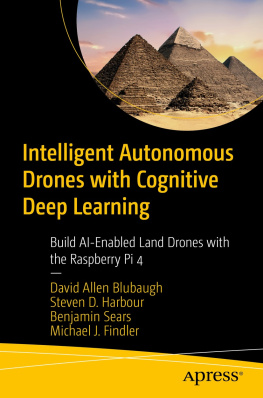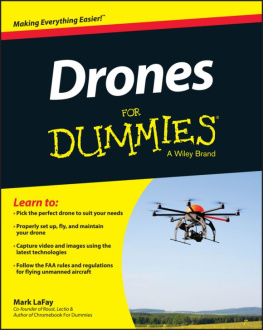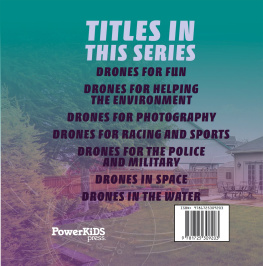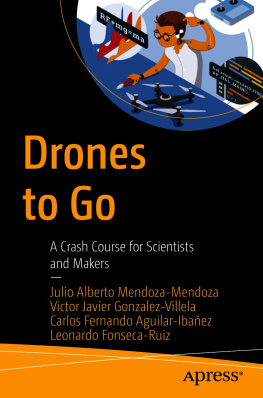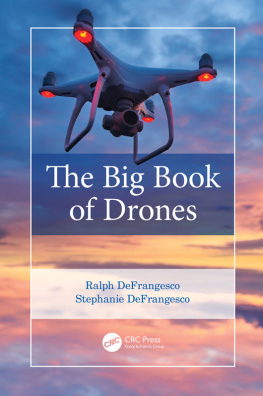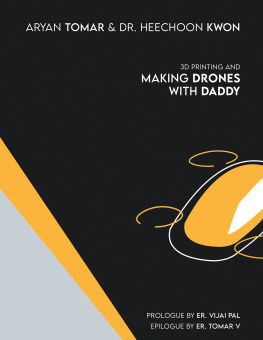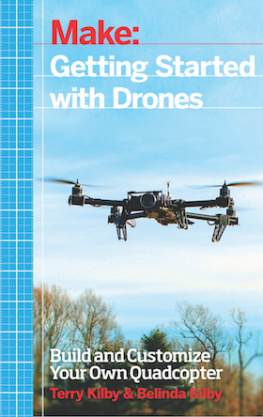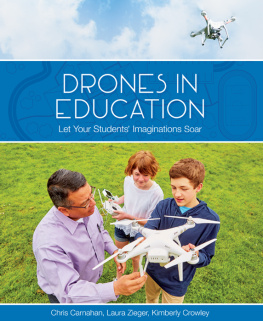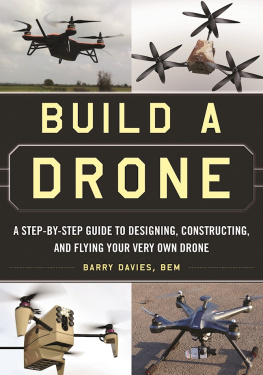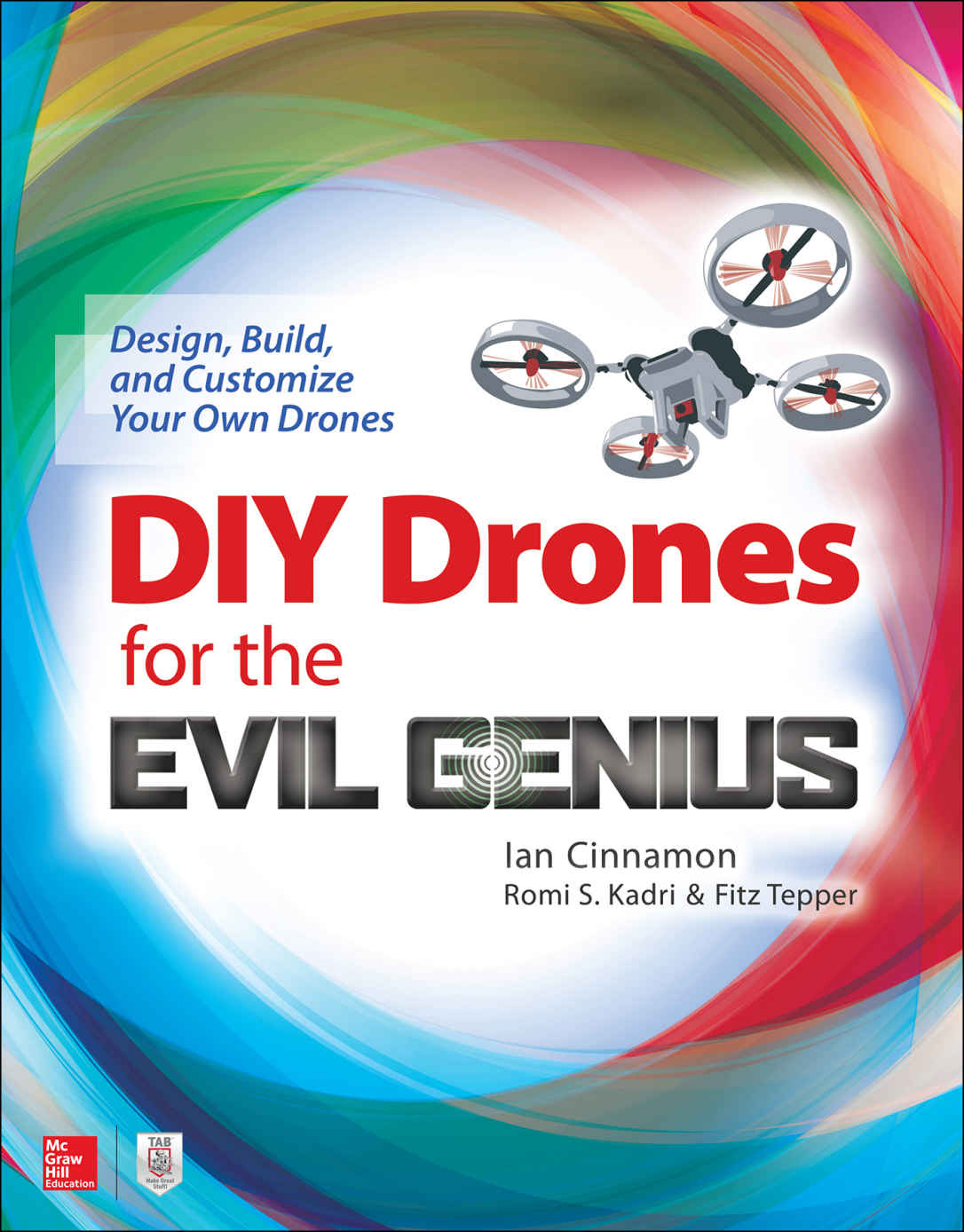Evil Genius Series
15 Dangerously Mad Projects for the Evil Genius
22 Radio and Receiver Projects for the Evil Genius
25 Home Automation Projects for the Evil Genius
30 Arduino Projects for the Evil Genius, Second Edition
30 BeagleBone Black Projects for the Evil Genius
50 Awesome Auto Projects for the Evil Genius
50 Model Rocket Projects for the Evil Genius
51 High-Tech Practical Jokes for the Evil Genius
101 Spy Gadgets for the Evil Genius
101 Outer Space Projects for the Evil Genius
123 PICMicrocontroller Experiments for the Evil Genius
123 Robotics Experiments for the Evil Genius
Arduino + Android Projects for the Evil Genius
Bionics for the Evil Genius: 25 Build-It-Yourself Projects
Electronic Circuits for the Evil Genius, Second Edition: 64 Lessons with Projects
Electronic Gadgets for the Evil Genius: 28 Build-It-Yourself Projects
Electronic Games for the Evil Genius
Electronic Sensors for the Evil Genius: 54 Electrifying Projects
Fuel Cell Projects for the Evil Genius
Mechatronics for the Evil Genius: 25 Build-It-Yourself Projects
MORE Electronic Gadgets for the Evil Genius: 40 NEW Build-It-Yourself Projects
PC Mods for the Evil Genius: 25 Custom Builds to Turbocharge Your Computer
Programming Video Games for the Evil Genius
Raspberry Pi Projects for the Evil Genius
Solar Energy Projects for the Evil Genius
DIY Drones for the Evil Genius

Copyright 2017 by McGraw-Hill Education. All rights reserved. Except as permitted under the United States Copyright Act of 1976, no part of this publication may be reproduced or distributed in any form or by any means, or stored in a database or retrieval system, without the prior written permission of the publisher.
ISBN: 978-1-25-986147-5
MHID: 1-25-986147-3.
The material in this eBook also appears in the print version of this title: ISBN: 978-1-25-986146-8, MHID: 1-25-986146-5.
eBook conversion by codeMantra
Version 1.0
All trademarks are trademarks of their respective owners. Rather than put a trademark symbol after every occurrence of a trademarked name, we use names in an editorial fashion only, and to the benefit of the trademark owner, with no intention of infringement of the trademark. Where such designations appear in this book, they have been printed with initial caps.
McGraw-Hill Education eBooks are available at special quantity discounts to use as premiums and sales promotions or for use in corporate training programs. To contact a representative, please visit the Contact Us page at www.mhprofessional.com .
Information contained in this work has been obtained by McGraw-Hill Education from sources believed to be reliable. However, neither McGraw-Hill Education nor its authors guarantee the accuracy or completeness of any information published herein, and neither McGraw-Hill Education nor its authors shall be responsible for any errors, omissions, or damages arising out of use of this information. This work is published with the understanding that McGraw-Hill Education and its authors are supplying information but are not attempting to render engineering or other professional services. If such services are required, the assistance of an appropriate professional should be sought.
TERMS OF USE
This is a copyrighted work and McGraw-Hill Education and its licensors reserve all rights in and to the work. Use of this work is subject to these terms. Except as permitted under the Copyright Act of 1976 and the right to store and retrieve one copy of the work, you may not decompile, disassemble, reverse engineer, reproduce, modify, create derivative works based upon, transmit, distribute, disseminate, sell, publish or sublicense the work or any part of it without McGraw-Hill Educations prior consent. You may use the work for your own noncommercial and personal use; any other use of the work is strictly prohibited. Your right to use the work may be terminated if you fail to comply with these terms.
THE WORK IS PROVIDED AS IS. McGRAW-HILL EDUCATION AND ITS LICENSORS MAKE NO GUARANTEES OR WARRANTIES AS TO THE ACCURACY, ADEQUACY OR COMPLETENESS OF OR RESULTS TO BE OBTAINED FROM USING THE WORK, INCLUDING ANY INFORMATION THAT CAN BE ACCESSED THROUGH THE WORK VIA HYPERLINK OR OTHERWISE, AND EXPRESSLY DISCLAIM ANY WARRANTY, EXPRESS OR IMPLIED, INCLUDING BUT NOT LIMITED TO IMPLIED WARRANTIES OF MERCHANTABILITY OR FITNESS FOR A PARTICULAR PURPOSE. McGraw-Hill Education and its licensors do not warrant or guarantee that the functions contained in the work will meet your requirements or that its operation will be uninterrupted or error free. Neither McGraw-Hill Education nor its licensors shall be liable to you or anyone else for any inaccuracy, error or omission, regardless of cause, in the work or for any damages resulting therefrom. McGraw-Hill Education has no responsibility for the content of any information accessed through the work. Under no circumstances shall McGraw-Hill Education and/or its licensors be liable for any indirect, incidental, special, punitive, consequential or similar damages that result from the use of or inability to use the work, even if any of them has been advised of the possibility of such damages. This limitation of liability shall apply to any claim or cause whatsoever whether such claim or cause arises in contract, tort or otherwise.
Contents
About the Authors
Ian Cinnamon is an engineer and entrepreneur determined to bring ideas to life. At a young age, he taught himself computer science which led to him authoring the Scientific American Book Club bestseller Programming Video Games for the Evil Genius . He has been a leader and advisor at a number of Silicon Valley-based technology companies. In addition to serving in product roles at Apple, Yelp, and Zynga, Ian led his startup, superlabs , through acquisition and serves as Director of Strategy at the nonprofit Immunity Project. A Forbes 30 Under 30 Honoree, Ian is an MIT graduate and MBA candidate at Stanford Graduate School of Business.
Romi S. Kadri began his engineering career at Rolls-Royce, manufacturing compressor blades for jet engines before heading to MIT where he graduated in Engineering and Entrepreneurship. Having founded and invested in numerous technology businesses and served in everything from Artist Management at Interscope Records to Innovation at Sonos, he continues to fulfill his love of bringing the most impactful technologies and music to the world. In 2016 Romi became a certified pilot, turning his childhood dream of flying airplanes to reality.
Fitz Tepper writes for the technology news site TechCrunch about a wide range of topics ranging from FinTech and Bitcoin to drones and self-driving cars. Fitz also currently attends Fordham Universitys School of Law, and is a graduate of USCs Marshall School of Business. Fitz is also a frequent technology commentator on CNNs Los Angeles-based CNN Newsroom.
Acknowledgments
THANK YOU TO MY PARENTS Karen and Ken for giving me my first drone and encouraging me to fly higher and higher (not just with drones, but with life!). Thanks to my ever-supportive sister Molly for liking all of my drone photos on Instagram and encouraging me to turn my obsession into a real book. Thank you Ida and Bach for putting up with the ever-expanding drone collection (we seriously need to build a drone hanger). And Romi, Fitz, Katie, and Shanewithout you guys, this book would still be a crazy idea floating around in our heads. Thank you for helping make it a reality!



